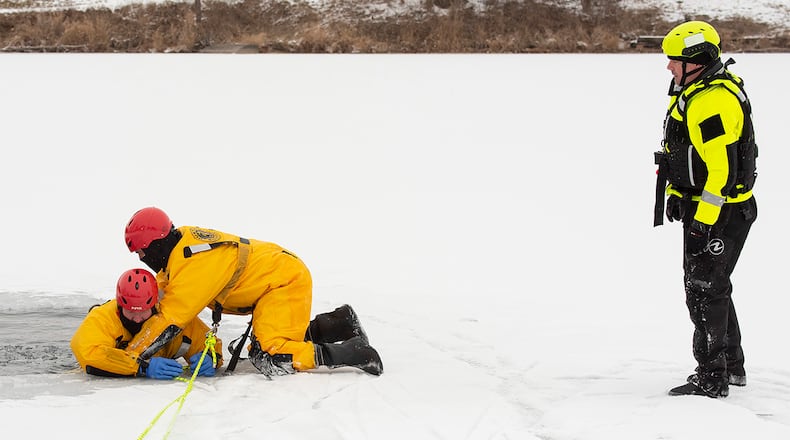Wright-Patterson Air Force Base Fire Department Capt. Brian Wilcher said a person who has been in the water for 10 minutes may not be able to assist in their own rescue. First responders need to know how to get the victim out without getting themselves in trouble.
That is where training comes in, because ice is different.
“(Our personnel) are all smart enough and highly trained in all our rope-rescue stuff. This is all basic stuff to them,” Wilcher said. “What is new and unique to them is actually having workable or usable ice that is safe enough for us to train on.”
Being able to feel the cold is important.
“This is to acclimate the rescuers, the people in the fire department, to cold-climate conditions,” he said. “We hate for them to learn what the suit feels like and the water feels like and the temperature feels like during an emergency.”
Wilcher and the fire department took advantage of this month’s cold weather to let base firefighters get their feet wet, so to speak. Every responder, except for those on leave, attended one of three training sessions held the second week of February.
One of them was Fire Department Capt. Steven McKee.
“I learned about the need to trust your equipment, the need to rely on others to get the job done, and that Ohio is still very cold,” he said.
This was not the first time McKee has taken part in this icy training, but he said refreshers are important.
“The more you use it, the easier it is,” he added.
About the Author
